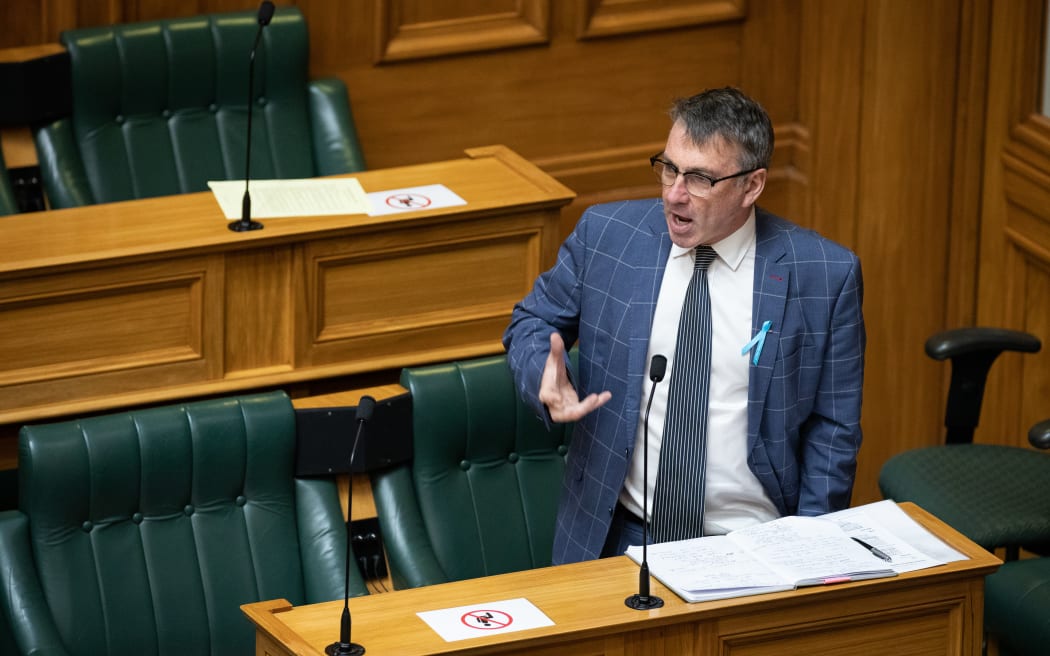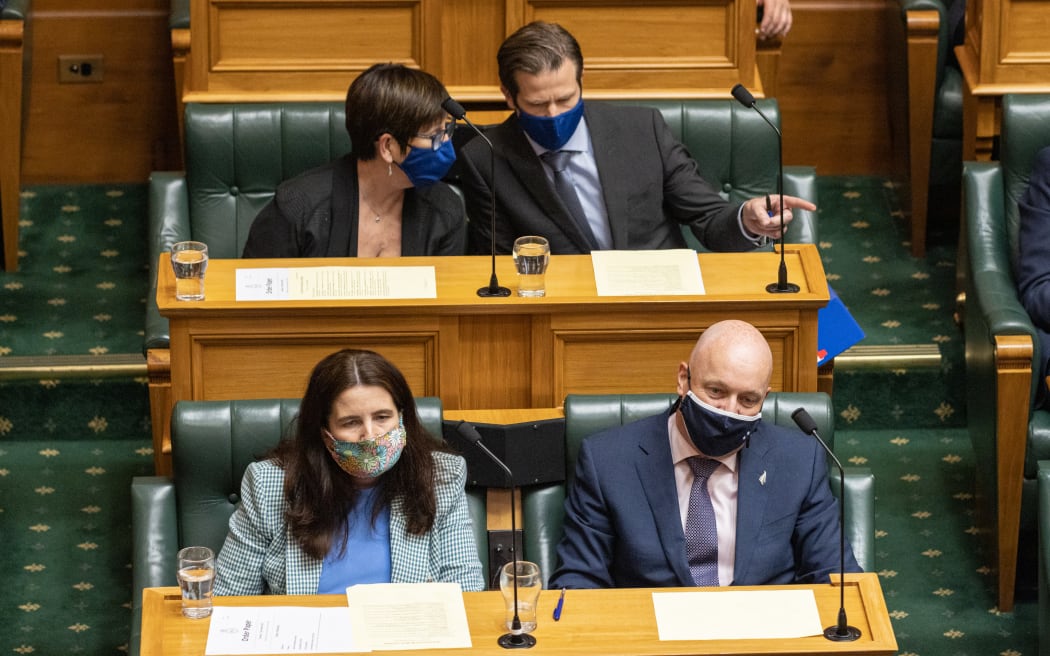Most people that follow Parliament watch Question Time, the rowdy oratorical contest when the political team's champions. The Prime Minister leads the ministers, the other party leaders front their own front rows.
That brief fracas is only a fraction of MPs’ work in the House. The rest of the time party leaders are typically absent, and the on-field captains are quite different people, the whips.
Whips are senior backbench MPs with more influence over what happens inside the House than their own party leaders. And despite being political foes, these battlefield commanders co-operate more than you might expect.

Labour's Chief Whip Duncan Webb in action in the House Photo: VNP / Phil Smith
Every party has them but the most influence is wielded by the whips from National and Labour. The most senior of the opposition whips is National MP Chris Penk.
“Obviously, as whips we corral our respective troops … to take part in that battle. …But, you know, there is actually a certain amount that we can work together on to make sure that the House runs smoothly, because that's probably to the benefit of all ultimately.”
I asked him why an opposition would want Parliament to run smoothly.
“If we have a dysfunctional Parliament, I don't think that's helpful to anyone, including to the Opposition.”
The senior governing-side whip is Labour's Chief Whip Duncan Webb, who points out that an effective opposition’s role is not to prevent government but instead “to hold government to account.”
“You know, parliamentarians actually take Parliament pretty seriously. …One part of my job is to make sure that the cogs of the machine turn in a way that Government can do its job, and the Opposition could do its job as well; because that's actually the more important thing at the end of the day ... that the respective parts of Parliament are operating effectively.”
In New Zealand party whips coordinate, bargain and cooperate to make sure that happens. They really do. They share a genuine belief in the importance of a functional parliamentary democracy.
Duncan Webb says “it is about Parliament working for New Zealand. I do think that the laws that we make, and the work that we do… are done better. If we've got an opposition which is able to ask those questions and press us in select committee, in the House and elsewhere.”
Yes it’s a very ‘rugby was the winner on the day’ ethos.

National's Senior Whip Chris Penk coordinates with his number two, Maureen Pugh. Whips are typically seated behind their party leaders, like halfbacks organising the troops behind a ruck or scrum. Photo: VNP / Phil Smith
But New Zealand politicians are not short sighted and they also know that the political wheel of fortune inevitably turns. They may be in opposition now, but that isn't forever. If you collapse the scrum when it’s your turn you invite similar from your opponent.
“It's what goes around comes around, right?” observes Duncan Webb.
Chris Penk notes that politicians “have got long memories.” He offers a pragmatic version of the golden rule, “treating others as you would have them treat you, maybe not from a moral perspective so much, but … in the self interest of knowing that at some point, the boot will be on the other foot.”
It's not the version of the Sermon on the Mount I remember, but it works.
Some of the negotiation happens in real time in the House, as whips will confer, but much takes place each week in the Speaker's office when the Business Committee meets and senior MPs nut out elements of the next week’s agenda.
That meeting of all the parties agrees all manner of things: roughly how long to spend debating various items of business; whether to set aside the rules and speed through a bill that everyone agrees is important; when to schedule special debates and speeches; who should get what committee assignments and roles.
They don’t always agree. But they also don't kvetch about their disagreements.
Sometimes they patiently negotiate for months before finding common ground. The Covid rules that allow virtual attendance in the House took months of debate (and possibly a change in one party's leadership).
Some of those agreements are obvious in the House. Anytime the Speaker says “in accordance with a determination of the Business Committee…” you know that what happens next is the result of that cooperation (and would often not usually be allowed).
Duncan Webb sees the health of that group as essential.
“If that committee went into an adversarial setting, Parliament really would grind to a halt. And we get that that would be no good for anyone, including New Zealand.”
The cooperative approach is not always announced. Sometimes it’s just a quiet word between team captains to agree to settle their own teams’ niggles down, to play fairly and keep it civil.
That attitude is one reason New Zealand has an unusually functional Parliament.
Long may it be so.


